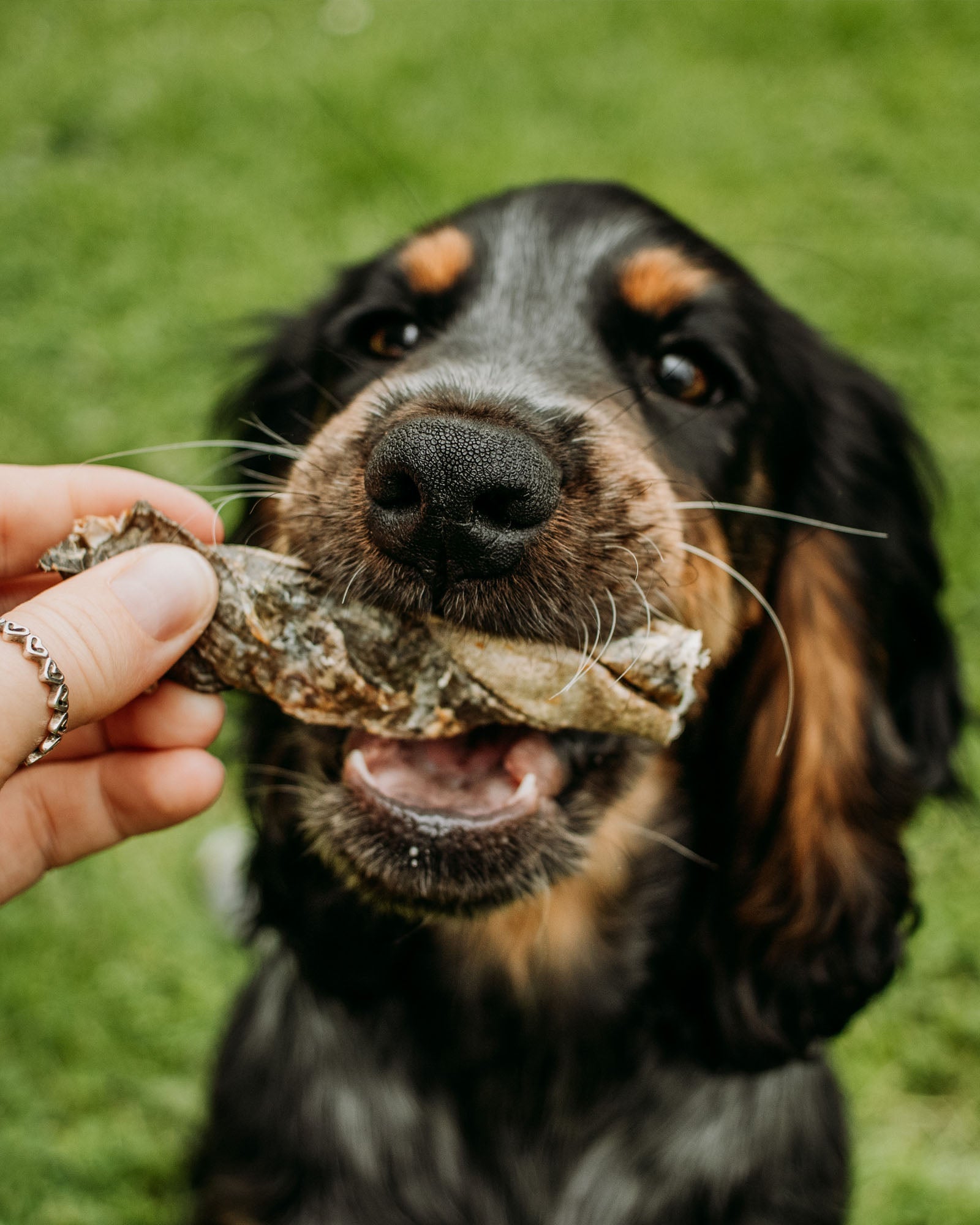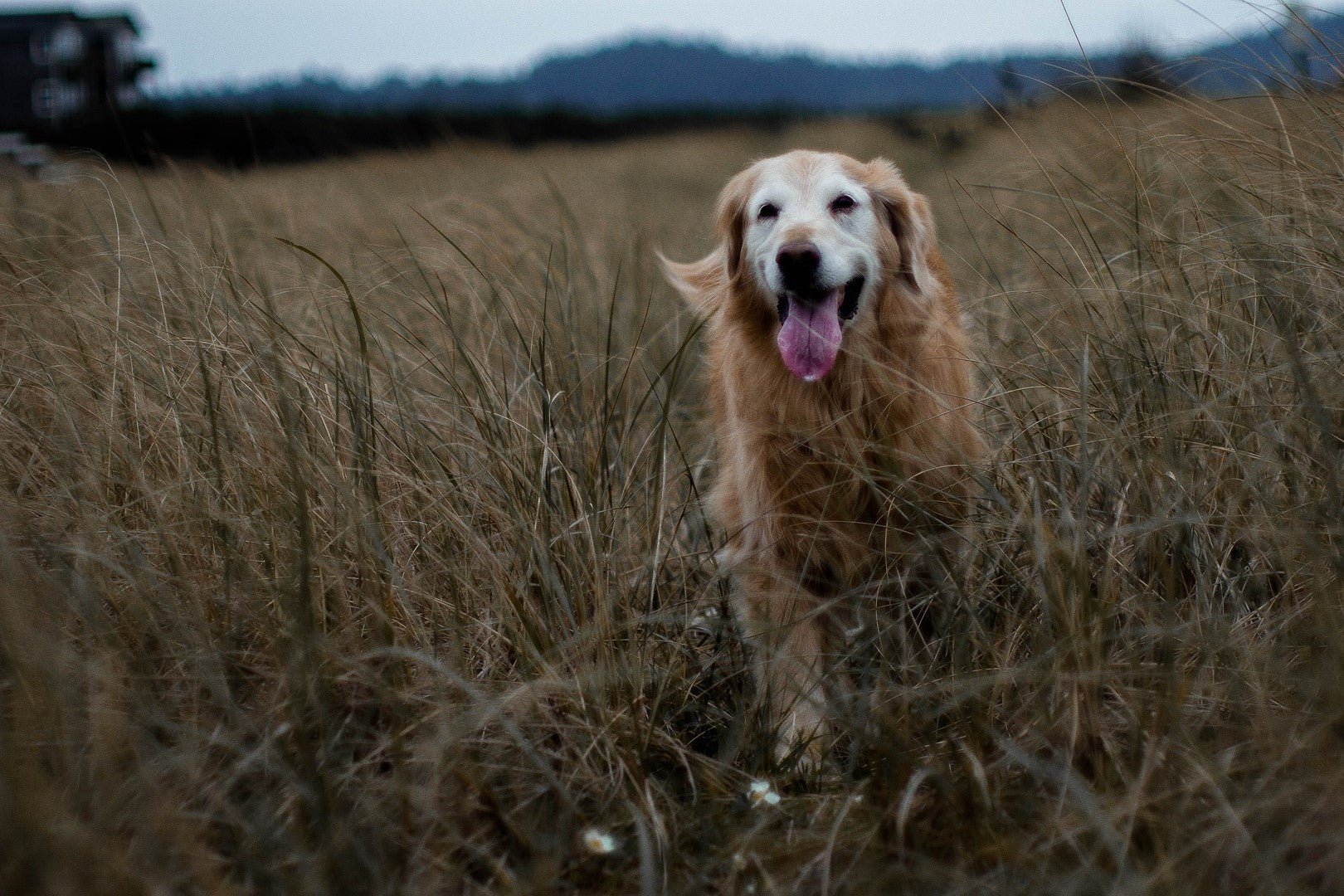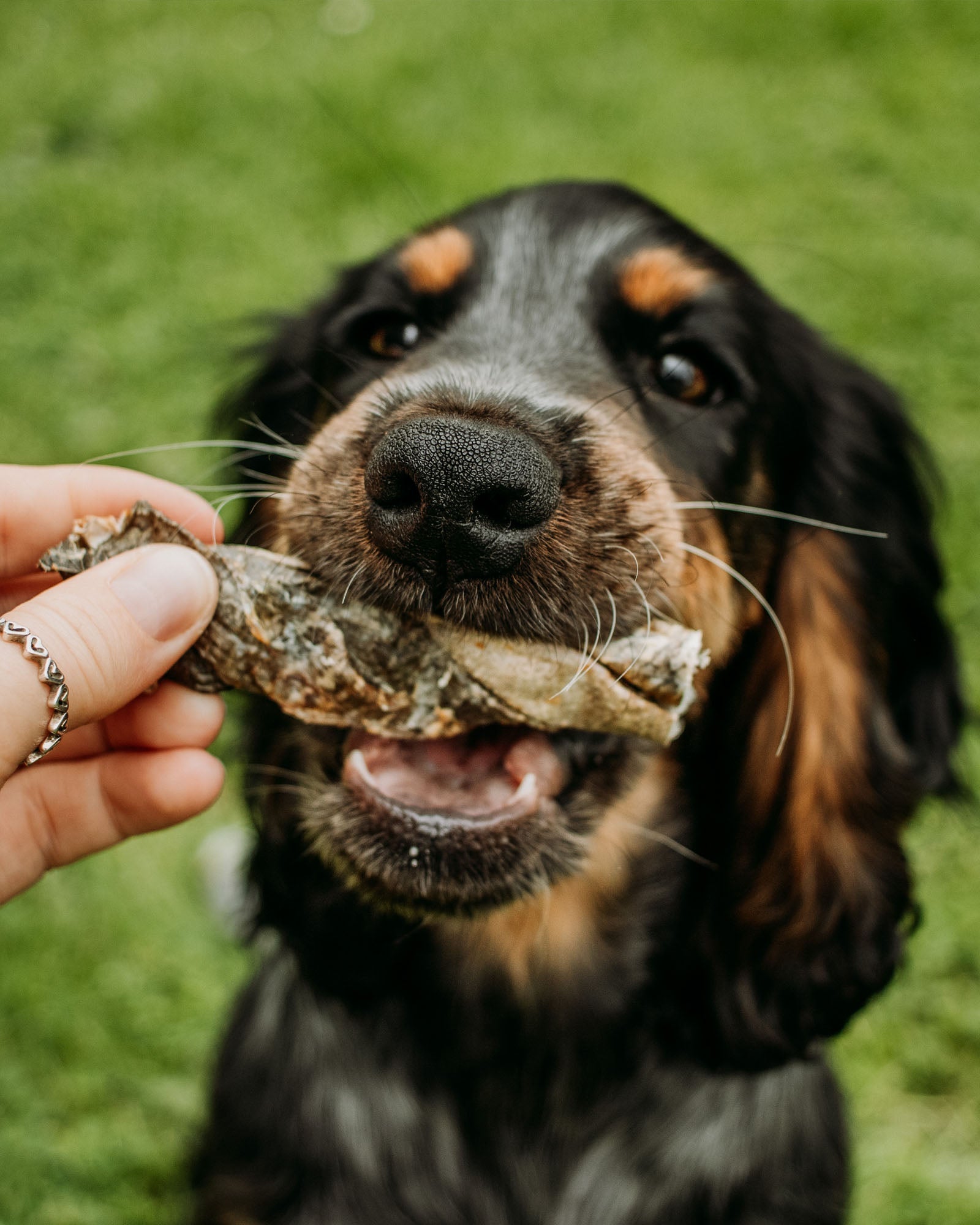Can You Train Your Senior Dog? | Tips for Training an Older Dog

Are you navigating the journey of training an older dog? It's a rewarding path that deepens the bond between you and your faithful companion. But as our furry friend's age, questions may arise: Can you continue their training? Is it even possible? Rest assured, training your older dog isn't just about teaching new tricks. It's about enriching their golden years with mental stimulation, reinforcing good behaviour, and strengthening the bond you share. Each training session becomes an opportunity to connect with your furry friend on a deeper level and celebrate the journey you've embarked on together. Explore the wealth of knowledge and techniques available to make training an enriching and rewarding experience for both you and your senior canine companion.
Is my dog too old to train?
Dogs of all ages have an incredible capacity to learn and adapt, and senior dogs are no exception. Whilst it's natural for older dogs to have established routines and habits, it's never too late to introduce them to new skills and behaviours. In fact, training can be an enriching experience for senior dogs, stimulating their minds, strengthening their bond with you, and enhancing their overall quality of life. So, if you've ever questioned whether your dog is too old to train, rest assured that age is no barrier to unleashing their full potential and fostering a deeper connection with them through positive reinforcement and patience.
Why is it important to train my older dog?
Training is a lifelong journey that benefits dogs of all ages, including senior dogs. As your loyal companion grows older, training becomes even more crucial for their overall well-being and quality of life. By engaging in short daily training sessions, you're providing your dog with essential physical exercise and stimulation. Training reinforces good behaviour, strengthens the bond between you and your furry friend, and fosters a sense of trust and companionship. Moreover, a well-trained senior dog is safer and more manageable in various situations, whether it's navigating the neighbourhood on walks or interacting with other pets and people. Ultimately, training your older dog isn't just about teaching new tricks. It's about enhancing their happiness, health, and harmony within your family dynamic.
5 essential tips for training your older dog
Training your senior dog can be a fulfilling journey, but where do you begin? Here are five indispensable tips to help you navigate the training process with confidence and success. From establishing a consistent routine to adapting to your dog's individual needs, unlock your older dog's full potential and strengthen your bond along the way.

Establish a routine
Consistency is the cornerstone of successful training for older dogs. Establishing a predictable daily routine encompassing feeding times, walks, and dedicated training sessions provides structure that helps your senior dog understand what is expected of them. This routine not only fosters a sense of security but also reinforces positive behaviours by consistently reinforcing desired actions.
Use positive reinforcement
Older dogs thrive on praise and rewards. Harness the power of positive reinforcement by using treats, toys, and verbal cues to celebrate and reinforce desired behaviours during training sessions. By associating these rewards with specific actions, you motivate your furry friend to engage actively in the learning process and eagerly participate in future training sessions.
Be patient and understanding
Patience is key when training older dogs. Recognise that senior dogs may require more time and patience to grasp new commands or behaviours. Be empathetic to their limitations and provide gentle guidance, encouragement, and reassurance as they navigate the learning process. Remember, progress may be gradual, but every small achievement is a step forward in your shared journey.
Keep training sessions short and fun
With age often comes a shorter attention span. To keep training sessions productive and enjoyable for your older dog, keep them brief and engaging. Focus on one or two commands at a time, ensuring each session is filled with fun and positive interactions. End on a high note to leave your dog eager and enthusiastic for the next training session.
Adapt to your dog's abilities
Tailor your training approach to meet the unique needs of your senior companion. Consider their individual physical capabilities, cognitive abilities, and any health issues or limitations they may have. Modify your training methods accordingly to ensure a safe and enjoyable learning experience. By adapting to your dog's abilities, you create an environment where they can thrive and succeed in their training journey.
Benefits of training your older dog
For older dogs, training offers many benefits that contribute to their overall quality of life. First and foremost, training provides mental stimulation, keeping your senior dog's mind sharp and engaged as they age. This mental exercise can help stave off cognitive decline and provide a sense of purpose and fulfilment for your furry friend. Additionally, training reinforces positive behaviours, such as obedience and manners, making your senior dog a joy to be around in any situation. A well-trained older dog is also safer and more reliable, whether you're out for a leisurely stroll or hosting guests at home. Moreover, the training process itself strengthens the bond between you and your canine companion, fostering trust, communication, and mutual respect. Ultimately, investing time and effort into training your older dog pays dividends in their happiness, health, and harmonious integration into your family life.
Treats to use when training an older dog
Should I mentally stimulate my older dog?
Absolutely! Mental stimulation is just as important for older dogs as it is for puppies. As dogs age, their cognitive abilities may decline, but regular mental exercise can help keep their minds sharp and engaged. Activities such as puzzle toys, scent games, and obedience training provide valuable mental stimulation for senior dogs, keeping them mentally alert and active. Not only does mental stimulation ward off boredom and prevent behavioural issues like anxiety and depression, but it also promotes overall cognitive health and may even slow down the ageing process. So, whether it's teaching new tricks or introducing brain games into their routine, investing in your older dog's mental well-being is a key aspect of providing them with a fulfilling and enriching life in their golden years.
What's the difference between training puppies and older dogs?

Training puppies and older dogs both come with their unique sets of challenges and rewards. Whilst the basic principles of training remain consistent across all ages, there are notable differences in approach and expectations when it comes to puppies versus older dogs.
Puppies are like sponges, eager to absorb new information and experiences. They have boundless energy and a shorter attention span, requiring frequent breaks and shorter training sessions. Positive reinforcement shapes their behaviour and builds a strong foundation of obedience and socialisation skills.
On the other hand, older dogs may have already established habits and routines, making them appear less receptive to training. However, they bring maturity, patience, and a deeper understanding of human cues to the training process. Whilst they may take longer to learn new commands, older dogs often excel in advanced training and can benefit from activities that stimulate their minds and bodies.
Additionally, older dogs may have physical limitations or health concerns that require adjustments to their training regimen. It's essential to tailor your approach to suit your dog's individual needs, providing gentle guidance and understanding as they navigate the learning process.
Frequently Asked Questions
How can I train my older dog to pee outside?
Teaching your older dog to pee outside requires patience and consistency. Establish a routine by taking them out at regular intervals and using positive reinforcement to reward them for peeing outdoors. Monitor their behaviour for signs of needing to go and supervise them during bathroom breaks. Be patient and avoid punishment for accidents indoors. With time and positive reinforcement, you can successfully train your older dog to pee outside, ensuring a well-behaved, house-trained companion.
How do I train my older dog to stop barking?
Training your older dog to stop excessively barking requires understanding the underlying reasons behind their vocalisations and implementing effective training techniques. Start by identifying the triggers that lead to your dog's barking, whether it's boredom, loneliness, territorial behaviour, or anxiety. Once you understand the root cause, you can address it through positive reinforcement training, redirecting their focus, and providing mental and physical stimulation. Techniques such as teaching the "quiet" command, desensitisation, and counterconditioning can help modify your dog's behaviour over time.
How can I train my older dog to walk on a leash?
Training your older dog to walk calmly on a leash is essential for transforming your daily walks into enjoyable and stress-free experiences for both you and your furry friend. Begin by gradually introducing your dog to their leash, allowing them to acclimate to wearing it indoors before venturing outside. Employ positive reinforcement techniques, such as treats and praise, to reward your dog for walking calmly beside you and following your cues. Practice walking on a loose leash in a quiet, familiar environment, gradually increasing distractions as your dog gains confidence. Foster good leash manners by stopping and rewarding your dog for walking politely and avoiding pulling. With patience, consistency, and positive reinforcement, you can instil confidence and ease in your older dog's leash-walking skills.
How do I crate train my older dog with separation anxiety?
Crate training serves as a powerful tool in comforting older dogs experiencing separation anxiety. To initiate crate training, introduce the crate gradually, ensuring it's adorned with comforting bedding and familiar toys. Encourage positive associations by feeding meals inside and offering treats whenever your dog willingly enters. Begin with short periods of confinement, gradually extending the duration as your dog grows more at ease. Employ desensitisation techniques to alleviate anxiety triggers, such as the sound of the crate door closing.
Is it too late to train my older dog?
It's never too late to train your older dog! Whilst some may believe that older dogs are set in their ways, the truth is that dogs of all ages can learn new behaviours and skills with patience, consistency, and positive reinforcement. Whether you're addressing behavioural issues, teaching basic commands, or introducing advanced training techniques, older dogs are capable of adapting and thriving in the learning process.





























